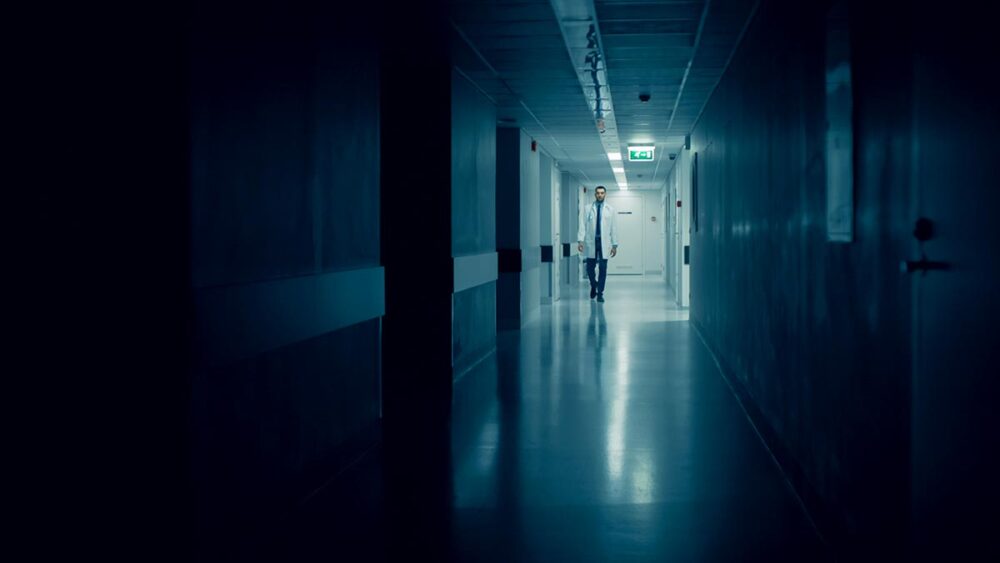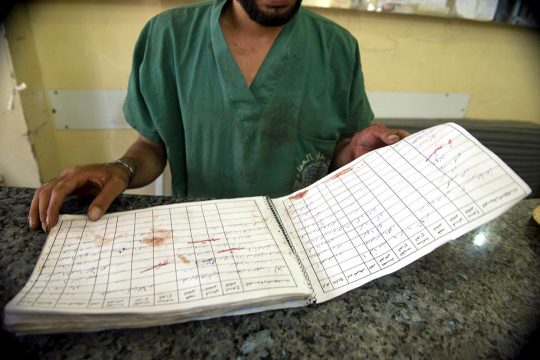A German court on Monday sentenced a Syrian doctor to life in prison for crimes against humanity for torturing detainees at military hospitals under former ruler Bashar al-Assad.
The crimes committed by Alaa Mousa, 40, during the Syrian civil war were "part of a brutal reaction by Assad's dictatorial, unjust regime", said Christoph Koller, the presiding judge at the higher regional court in Frankfurt.
Germany has tried several Assad supporters under the legal principle of "universal jurisdiction", which allows for serious crimes to be prosecuted even if they were committed in a different country.
The civil war erupted in 2011 after Assad's brutal repression of anti-government protests, sparking a spiralling conflict that drew in regional actors and cost hundreds of thousands of lives.
Mousa was accused by federal prosecutors of torturing patients at military hospitals in Damascus and Homs on 18 occasions between 2011 and 2012.
In one instance, Mousa was said to have set fire to the genitals of a teenage boy and in another case to have delivered a lethal injection to a detainee who resisted a beating.
As well as crimes against humanity, the court found Mousa guilty of murder, torture and war crimes.
He had denied the charges in the trial, which came to a close a few months after Assad was ousted in December 2024.
Mousa arrived in Germany in 2015 on a visa for highly skilled workers at the same time as hundreds of thousands of Syrians were fleeing the civil war at home.
He continued to practise medicine in Germany, working as an orthopaedic doctor until he was arrested in June 2020.
'Slaughterhouse'
According to federal prosecutors, Mousa worked at military hospitals in Homs and Damascus, where political opponents detained by the government were brought for treatment.
Instead of receiving medical assistance, the patients were tortured and "not infrequently killed".
In one case, Mousa was accused of pouring flammable liquid on a prisoner's wounds before setting them on fire and kicking him in the face so hard that three of his teeth had to be replaced.
Other inmates were kicked and beaten, sometimes with medical tools, according to prosecutors.
During the trial, the court heard testimony from colleagues and detainees, who said they recognised the accused, according to German weekly Der Spiegel.
One former inmate said he had been forced to carry the bodies of patients who died after being injected by Mousa, Der Spiegel reported.
Another witness said the military hospital where he was held in Damascus had been known as a "slaughterhouse".
At the opening of the trial in 2022, Mousa told the court he had witnessed beatings but had been scared to speak out.
"I felt sorry for them, but I couldn't say anything, or it would have been me instead of the patient," he said.
'Witnesses threatened'
As well as the difficulties presented by the 10-year gap between the crimes and the start of the trial, Koller said Assad's government had "attempted to influence" proceedings before it was toppled.
Confidential information was passed to Syria, "so that relatives of witnesses were threatened" and "probably even abducted", Koller said.
The first global trial over state-sponsored torture in Syria under the Assad government opened in 2020 in Koblenz, western Germany.
The accused in the trial, a former army colonel, was found guilty of crimes against humanity and sentenced to life in jail in 2022.







